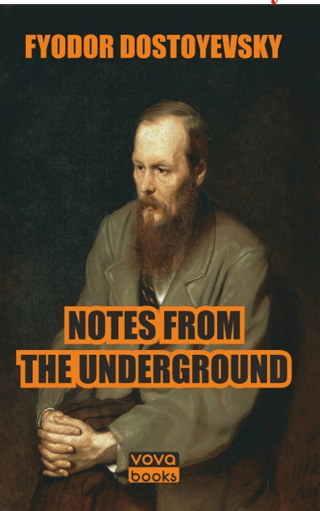Notes From The Underground

• Notes from Underground also translated as Notes from the Underground or Letters from the Underworld ) is a novella by Fyodor Dostoevsky , first published in the journal Epoch in 1864. It is a first-person narrative in the form of a " confession ": the work was originally announced by Dostoevsky in Epoch under the title "A Confession". The novella presents itself as an excerpt from the memoirs of a bitter, isolated, unnamed narrator (generally referred to by critics as the Underground Man), who is a retired civil servant living in St. Petersburg . Although the first part of the novella has the form of a monologue , the narrator's form of address to his reader is acutely dialogized . According to Mikhail Bakhtin , in the Underground Man's confession "there is literally not a single monologically firm, undissociated word". The Underground Man's every word anticipates the words of an other, with whom he enters into an obsessive internal polemic.
• Notes from Underground also translated as Notes from the Underground or Letters from the Underworld ) is a novella by Fyodor Dostoevsky , first published in the journal Epoch in 1864. It is a first-person narrative in the form of a " confession ": the work was originally announced by Dostoevsky in Epoch under the title "A Confession". The novella presents itself as an excerpt from the memoirs of a bitter, isolated, unnamed narrator (generally referred to by critics as the Underground Man), who is a retired civil servant living in St. Petersburg . Although the first part of the novella has the form of a monologue , the narrator's form of address to his reader is acutely dialogized . According to Mikhail Bakhtin , in the Underground Man's confession "there is literally not a single monologically firm, undissociated word". The Underground Man's every word anticipates the words of an other, with whom he enters into an obsessive internal polemic.





